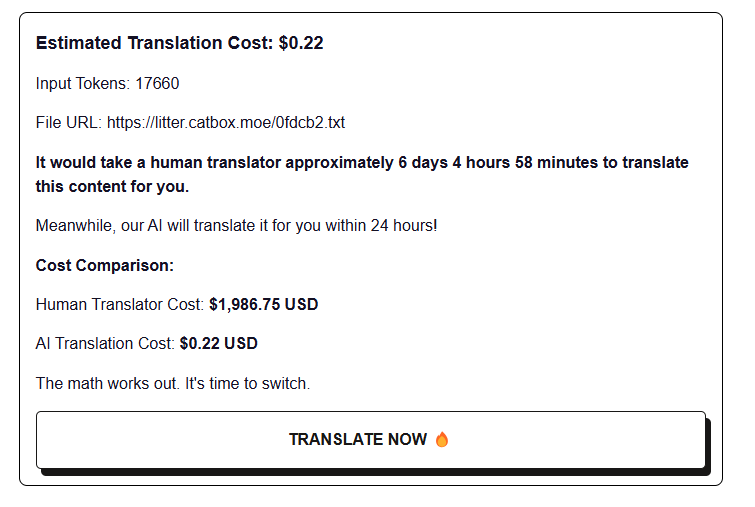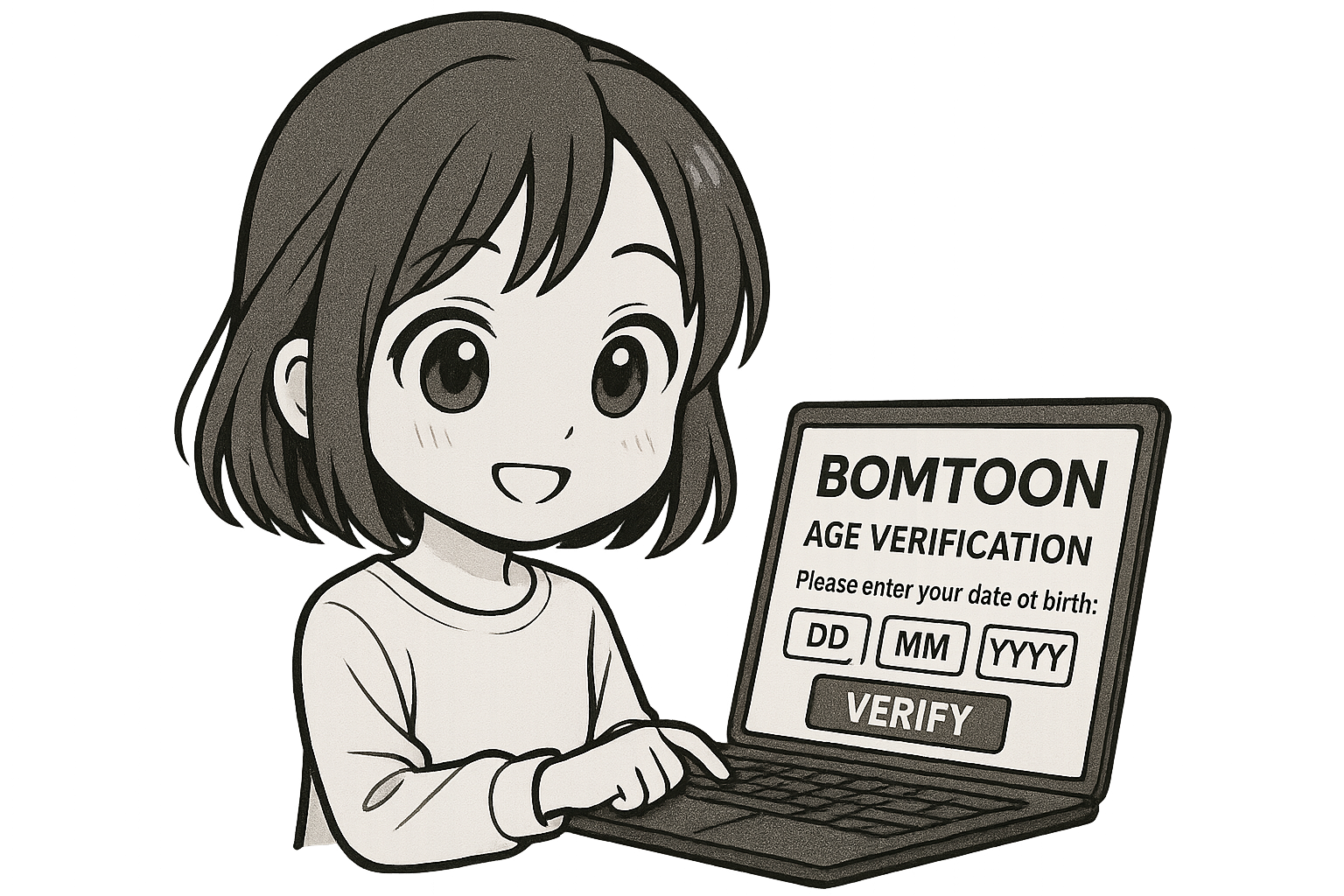AI translation costs depend on several factors, including the model used, the specific language pair, and the volume of text. Here’s a breakdown of what to expect when considering the investment in AI translation services:
Pricing Models
- Subscription-Based Pricing
A fixed monthly fee for unlimited usage. Ideal for regular translators or avid readers. - Pay-As-You-Go
Costs are based on the amount of text translated. Suited for occasional users or those with limited projects. - Tiered Pricing
Different pricing levels cater to varied needs. Higher tiers often include premium features like advanced glossaries and support.
Influencing Factors
- Volume of Text
More text typically means a lower cost per word due to bulk discounts. - Language Complexity
Less commonly spoken languages may incur higher costs due to fewer resources. - Additional Features
Integrating features like glossaries or specialized fields might increase the overall expense.
AI Translation Cost
AI translation costs depend on several factors, including the model used, language pair, and volume of text. Here’s a breakdown:
| Pricing Model | Estimated Cost |
|---|---|
| Subscription | $20 – $100/month |
| Pay-As-You-Go | $0.10/word |
| Tiered Pricing | $50 – $300/month |
| Webnovels AI Cost | $13/month, unlimited translation with your own API key. |
For more details, visit Webnovels AI Pricing.
Understanding these costs helps users and businesses assess their translation needs effectively. Webnovels AI offers various affordable options tailored for readers and translators of Chinese, Japanese, and Korean novels. With features like uncapped translations, the ability to bring your own GPT API key, and automated glossary generation, it simplifies the translation process.
Anyone can explore plans further at Webnovels AI Pricing to find suitable options. It’s all about finding the right balance between cost and quality while diving into those exciting Asian stories.
Factors Influencing AI Translation Cost
Numerous elements affect AI translation costs. Understanding these factors simplifies budget planning for users and businesses.
Language Pair Complexity
Language pairs vary in difficulty, creating distinct cost implications. Translating between simpler languages often incurs lower costs compared to complex pairs. For example, translating from English to Spanish is generally more straightforward than English to Japanese. This complexity arises due to linguistic structures, idiomatic expressions, and cultural nuances. More challenging pairs may require advanced algorithms and additional resources, resulting in higher costs.
Volume of Content
Content volume plays a significant role in determining AI translation costs. Larger documents usually lead to higher expenses, while smaller texts maintain lower fees. Also, many services provide bulk discounts, incentivizing users to translate multiple documents or extensive works together. Webnovels AI offers uncapped translations, so users can tackle lengthy novels without worrying about costs piling up. Balancing volume with pricing can yield substantial savings for avid readers and translators alike.
Comparison of AI Translation Costs
Understanding AI translation costs involves exploring various tools and models available. Numerous platforms deliver unique features that cater to different needs, which helps users find the best fit within their budget.
Different AI Translation Tools
AI translation tools vary in pricing and capabilities. For example, Webnovels AI stands out with its unlimited translations feature, providing access to a vast library of Asian novels. Users can bring their own GPT API keys, making the service flexible and tailored to individual needs. The ease of background translation ensures users can jump into their favorite stories without interruptions, while the automated glossary generator simplifies complex terminology. These features collectively enhance the reading experience for fans of Chinese, Japanese, and Korean literature.
Traditional Translation vs. AI Translation
Traditional translation services often come with hefty price tags and longer turnaround times. In contrast, AI translation delivers quick results, making it an efficient choice for readers and translators. While traditional translators offer nuanced understanding, AI tools like Webnovels AI provide affordable and accessible translations that cater to a global audience. The overall cost savings, combined with the platform’s extensive features, make AI translation a practical option for anyone passionate about Asian novels.
Challenges and Limitations of AI Translation
AI translation presents various challenges and limitations that users must consider. Even though advancements, it isn’t flawless and can produce awkward phrases. Misinterpretations occur, especially in nuanced or culturally-specific contexts, impacting the overall message. For instance, idiomatic expressions often get lost in translation, resulting in confusion rather than clarity.
Quality varies significantly based on language complexity. Simpler languages process smoothly, while languages with intricate grammar structures may suffer. Users translating Korean webtoons might find rich cultural references misunderstood, leading to a mismatch in tone.
Also, the lack of human touch often hampers emotional resonance. Readers of emotional narratives might find AI-generated translations lack the warmth of a human translator. While AI excels at efficiency, it struggles with context and feelings, making certain emotional scenes fall flat.
Another challenge relates to security and privacy. Using AI translation tools can pose risks, particularly with sensitive or proprietary texts. Users must ensure they’re engaging with reputable services. With Webnovels AI, translating raw content securely is achievable, thanks to its commitment to user privacy.
Integration issues also arise. Some users face difficulties melding AI translation with existing workflows. Custom API keys offer flexibility, but it may require extra setup for those unfamiliar with tech solutions. Webnovels AI caters to this need, facilitating smooth integration for translators.
Even though these challenges, AI translation offers incredible benefits for those reading Asian novels. With affordable pricing models at Webnovels AI, users can access uncapped novel translations, making it a breeze to jump into new worlds without very costly. Plus, features like automated glossary generation make reading seamless, enhancing the overall experience.
Key Takeaways
- Understanding AI Translation Costs: Costs vary significantly based on the model (subscription, pay-as-you-go, tiered) and factors such as language pair complexity and volume of text translated.
- Key Pricing Models: Subscription fees range from $20 to $100 per month, pay-as-you-go charges are typically $0.03 to $0.10 per word, and tiered pricing can vary from $50 to $300 per month.
- Influencing Factors: Higher costs may arise from the complexity of language pairs and the need for additional features, with bulk translations often yielding lower per-word costs.
- Comparative Advantages: AI translation offers quicker and often more cost-effective solutions compared to traditional translation services, making it ideal for enthusiasts of Asian literature.
- Challenges of AI Translation: Limitations include potential inaccuracies in complex languages, lack of emotional resonance, security concerns with sensitive texts, and integration difficulties with existing workflows.
- Webnovels AI Advantages: Features like uncapped translations, flexible integration using custom API keys, and automated glossaries enhance the reading experience for fans of Chinese, Japanese, and Korean novels while ensuring user privacy.
Calculate Your AI Translation Cost With Our FREE Webnovels AI Cost Calculator!
If you want to calculate the cost of your translation, try our tool below! Upload a novel and see how much you could save from using Webnovels AI instead of using a human translator in terms of time and cost. If you want to read your novel now and google translate is too trash at translating, definitely check it out.
Frequently Asked Questions
What is AI translation and why is it important?
AI translation utilizes artificial intelligence to convert text from one language to another, breaking down language barriers. It’s crucial for businesses and individuals to enhance global communication, making content accessible to diverse audiences and fostering collaboration across cultures.
What factors influence the cost of AI translation services?
The cost of AI translation varies based on factors such as the volume of text, language complexity, specific features offered, and the chosen pricing model. Understanding these aspects allows users to budget effectively for their translation needs.
What are the different pricing models for AI translation?
AI translation services typically offer several pricing models: subscription-based, pay-as-you-go, and tiered pricing. Each model has its own cost structure, allowing users to choose based on their usage patterns and budget requirements.
How does document size affect AI translation costs?
Larger documents generally result in higher translation costs due to the increased volume of text. However, many AI translation services offer bulk discounts, making it more economical for users with extensive content to translate.
What makes Webnovels AI a good choice for translation?
Webnovels AI stands out due to its affordable pricing, unlimited translation feature, and tailored benefits for users of Asian novels. It includes automated glossary generation and flexibility with GPT API keys, enhancing the reading experience.
What challenges are associated with AI translation?
AI translation can struggle with awkward phrases and misinterpretations, especially in culturally nuanced contexts. Additionally, users may face security and privacy concerns, and integration into existing workflows can be challenging.
How do traditional translation services compare to AI translation?
Traditional translation services often come with higher costs and slower turnaround times compared to AI translation. While AI is generally more affordable and faster, it may lack the emotional resonance and quality found in human translations.




